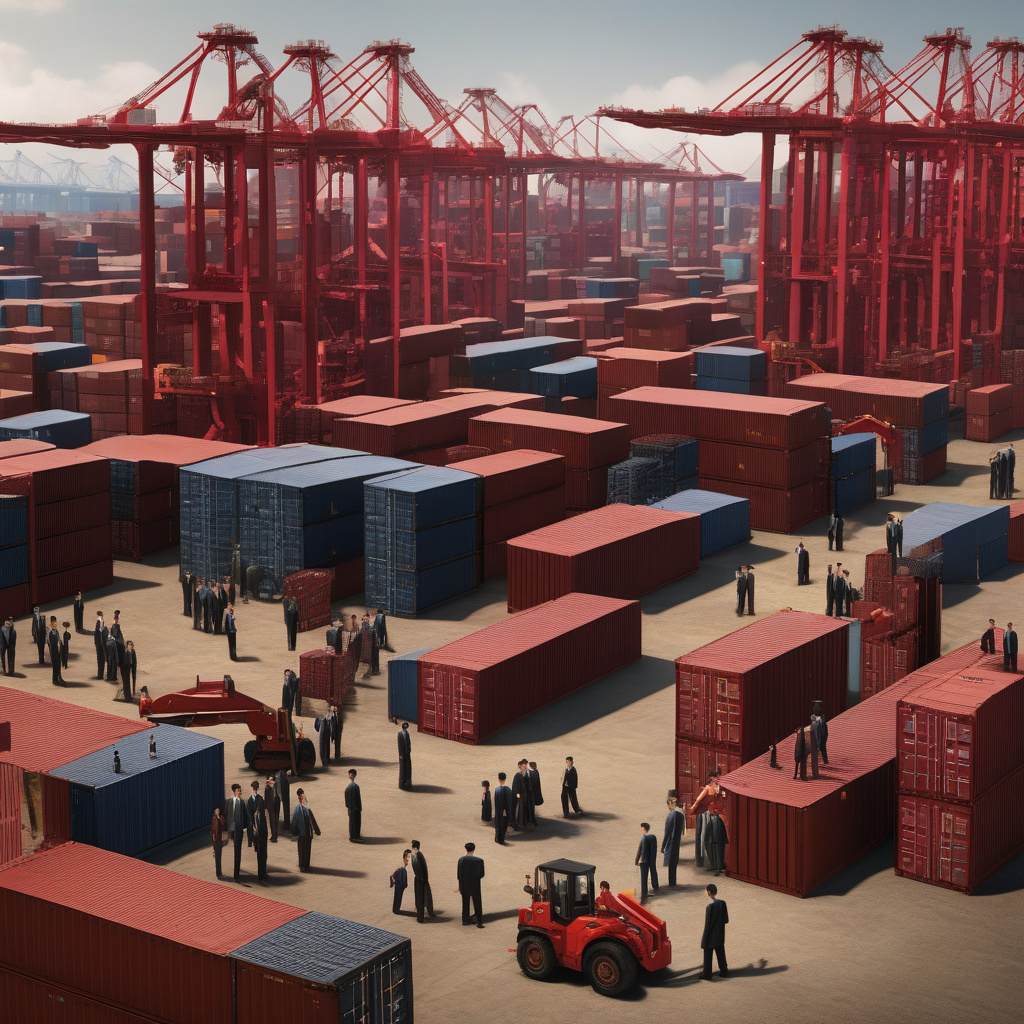China Halts Rare Earth Exports in Trade War Escalation
In the midst of the ongoing trade war between the United States and China, a new development has emerged that has sent shockwaves through global markets. China, the world’s largest producer of rare earth elements, has announced a halt on its exports of these critical minerals. This strategic move is seen as a significant escalation in the trade tensions between the two economic powerhouses.
Rare earth elements are a group of 17 minerals that are essential for the production of a wide range of high-tech products, including smartphones, electric vehicles, and advanced weaponry. China holds a virtual monopoly on the global supply of these minerals, accounting for over 80% of the world’s production. This dominant position gives China significant leverage in the trade war with the United States.
Critics of the latest U.S. trade strategy warn that it is bringing chaos, not clarity, to global markets. The decision by China to halt rare earth exports underscores the vulnerability of the U.S. and other countries that depend on Chinese supplies of these critical minerals. The move has raised concerns about the impact on the global supply chain and the potential for disruptions in key industries.
The United States is heavily reliant on Chinese rare earth supplies, making it particularly vulnerable to any restrictions imposed by Beijing. In response to China’s export halt, the U.S. government has announced plans to reduce its dependence on Chinese rare earths and develop alternative sources of these minerals. This includes efforts to ramp up domestic production and forge partnerships with other producers around the world.
The rare earth export halt is just the latest salvo in the ongoing trade war between the United States and China. The two countries have been locked in a tit-for-tat battle of tariffs and other trade barriers, with no clear end in sight. The uncertainty surrounding the trade war has rattled financial markets and raised concerns about the impact on the global economy.
In the face of this trade war escalation, businesses are being forced to adapt to a rapidly changing trade landscape. Companies that rely on rare earth elements in their supply chains are now faced with the challenge of securing alternative sources of these critical minerals. This may involve diversifying suppliers, stockpiling inventory, or investing in new technologies to reduce reliance on rare earths altogether.
The trade war between the United States and China shows no signs of abating, and the latest move by China to halt rare earth exports is a stark reminder of the high stakes involved. As global markets brace for further disruptions, businesses must be prepared to navigate the uncertainty and volatility that lie ahead.
In conclusion, the decision by China to halt rare earth exports represents a significant escalation in the trade war with the United States. The move has highlighted the strategic importance of rare earth elements and the challenges faced by businesses that rely on these critical minerals. As the trade war continues to unfold, companies must be proactive in adapting to a rapidly changing trade environment to mitigate risks and seize opportunities.
trade war, rare earth, global markets, supply chain, economic impact












